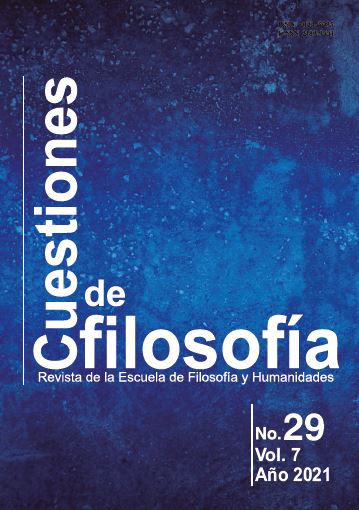Care of the self in Foucault: Capitalism, psychic economy and subjectivity

Abstract
This article comes from the reflection regarding Foucault´s concept of “care of the self”, which consists of the work on one self, in ethical terms. Such an ethical perspective portrays a setting of resistance and disruption against meaning construction models, established values, authorities and action directives which become unwrapped in a series of alienating practices that
shape the subjectivity of the contemporary person. In order to craft this subjectivity, schemes from the current and hegemonic psychic economy
are taken into consideration. Such schemes unfold and hold up nowadays production means. Among other psychic features, there are certain symptoms that are clinically similar to narcissism, condition whose traits are rooted in one of the phenomenal sides of fetishism. Accordingly, modernity´s technical rationality becomes a paradigm built upon unlimited growth and development. Fantasy formations that materialize under a model of exploitation, production and consumption practices founded in terms of power-knowledge. Thus, the illusion of technical omnipotence acquires an apparent condition of possibility through the intrusion of different technologies, performances, knowledge and instruments, which favor the frameworks in which the representations of explanation and meaning that underlie the current and valid subjectivity are erected.
Keywords
care of the self, fetishism, subjectivity, Umwelt, narcissism
References
- Aragüés, A. (2013). Apuntes sobre la teoría del valor de Marx. Cuaderno de Materiales, 25, pp. 5-24. http://www.filosofia.net/materiales/pdf25/teoria%20del%20valor.pdf
- Arendt, H. (2014). Los orígenes del totalitarismo (G. Solana, Trad.). Madrid: Alianza.
- Aristóteles (1988). Política. (M. García Valdés, Trad.). Madrid: Gredos.
- Bauman, Z. (2003). La modernidad líquida (M. Rosenberg, Trad.). Buenos Aires: Fondo de Cultura Económica.
- Bartra, R. (2014). Antropología del cerebro. Consciencia, cultura y libre albedrío. México: Fondo de Cultura Económica.
- Dufour, D. (2007). Le Divin Marché. La révotution culturele et libérale. París: Gallimard.
- Foucault, M. (1984). L’éthique du souci de soi comme pratique de la liberté (A. Gabilondo, Trad.). C. Gómez (Ed.), Doce textos fundamentales de la Ética del siglo XX (pp. 256-264). Madrid: Alianza.
- Foucault, M. (2013a). Histoire de la sexualité III - Le souci de soi. Paris: Gallimard.
- Foucault, M. (2013b). Surveiller et punir Naissance de la prison. Paris: Gallimard.
- François, F. (2013). El crepúsculo de Prometeo: contribución a una historia de la desmesura humana (N. Sobregués, Trad.). Barcelona: Galaxia Gutenberg.
- Freud, S. (1984). Introducción al narcisismo (J. L. Etcheverry, Trad.). Buenos Aires: Amorrortu.
- Han, B. (2014). Psicopolítica (A. Bergés, Trad.). Barcelona: Herder. DOI: https://doi.org/10.2307/j.ctvt7x7vj
- Han, B. (2017). La sociedad del cansancio (A. Saratxaga y A. Ciria, Trads.). Barcelona: Herder. DOI: https://doi.org/10.2307/j.ctvt9k12c
- Han, B. (2020). La desaparición de los rituales. Una topología del presente (A. Ciria, Trad.). Barcelona: Herder.
- Harari, Y. N. (2017). Homo Deus. Breve historia del mañana (R. Joandomènec, Trad.). México: Penguin Random House. DOI: https://doi.org/10.17104/9783406704024
- Horkheimer, M. y Adorno, Th. (2005). Dialéctica de la Ilustración (fragmentos filosóficos) (J. Sánchez, Trad.). Madrid: Trotta.
- Jappe, A. (2019). La sociedad autófaga, capitalismo, desmesura y autodestrucción (D. Sanromán, Trad.). España: Pepitas.
- Lacan, J. (2009). Escritos 1 (T. Segovia, Trad.). México: Siglo XXI. Laplanche, J. y Pontalis, J. (1996). Diccionario de psicoanálisis (F. G. Cervantes, Trad.). Barcelona: Paidós.
- Marx, K. (2010). El capital I. El proceso de producción del capital (P. Scaron, Trad.). Madrid: Siglo XXI.
- Preciado, B. (2008). Testo yonqui. Madrid: Espasa Calpe.
- Weil, S. (2014). Reflexiones sobre las causas de la libertad y de la opresión final (R. Blanco Vázquez, Trad.). Buenos Aires: Godot.